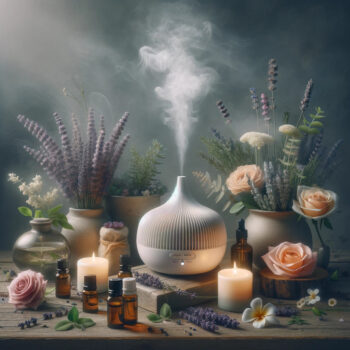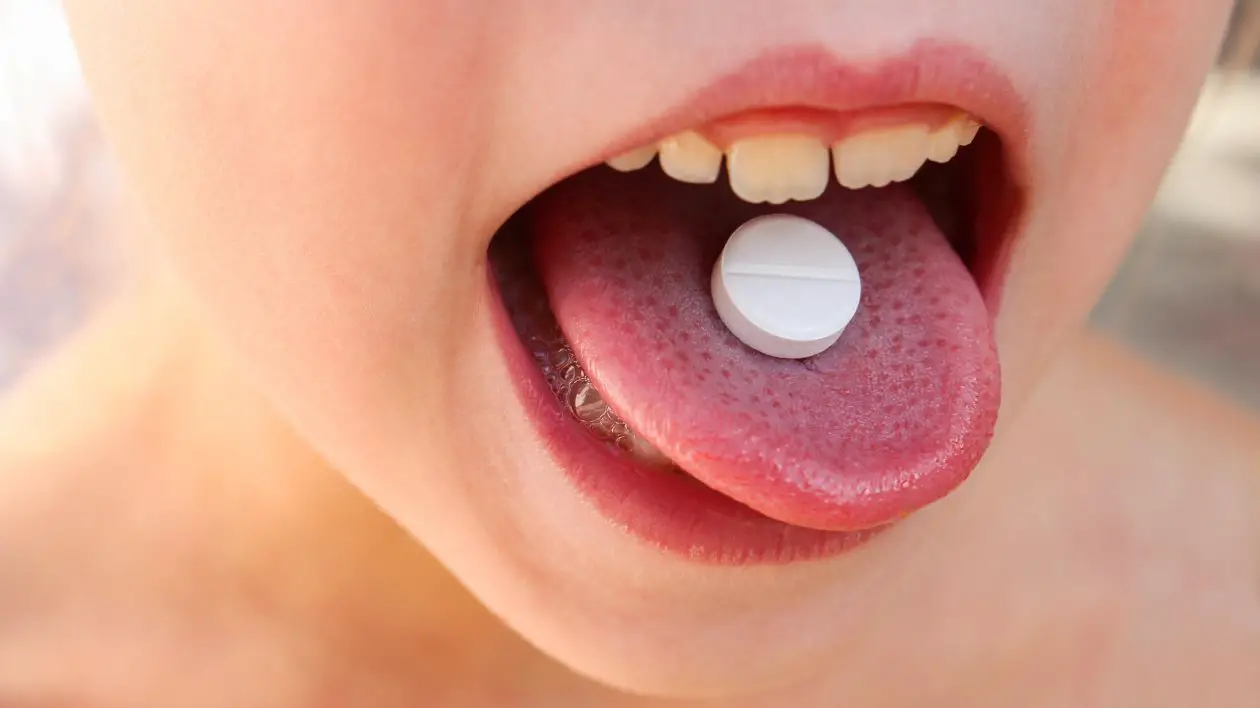 By Sayer Ji
By Sayer Ji
Contributing writer for Wake Up World
The health benefits of aromatherapy can no longer be considered placebo in nature. Accumulating evidence now shows that the fragrance of flowers and other volatile plant compounds pack a punch as powerful as certain drugs.
In a day and age like ours, bouts of stress and anxiety are expected to occur at least occasionally during the course of daily life. In fact, if the experience is completely alien to you, you may not be paying attention to what’s going on in the world around us — or, you may be enlightened, and should be congratulated.
Certainly, anti-anxiety drugs can be effective, but they are also addictive and dangerous, with withdrawal symptoms that include seizures and, paradoxically, extreme anxiety. Because of this fact, natural alternatives are needed now more than ever.
[pro_ad_display_adzone id=”110028″]
Fortunately, finding a non-pharmaceutical solution is no longer simply a matter of guessing, or relying solely on the anecdotal accounts of others. There is an accumulating body of pre-clinical and clinical research available today demonstrating the power, safety and effectiveness of natural compounds for relieving stress and anxiety. In fact, some of these substances do not even require being ingested, as they can be inhaled in exceedingly small doses to be effective.
For example, back in 2002, an amazing discovery was reported in the Japanese Journal of Pharmacology. Researchers found that the simple inhalation of patchouli and rose oil reduced sympathetic nervous activity by 40%, with rose oil reducing adrenaline concentrations by 30%.1
Such a profound reduction in fight-or-flight associated hormones is hard to accomplish through other non-toxic means. In fact, many folks use alcohol, tobacco and harder drugs, and even foods that contain opioid peptides, to self-medicate themselves down from the emotional cliff — but not without a wide range of unintended, adverse health effects. All the more reason to appreciate the power of therapeutic fragrances.
In turns out that many flowers are well-suited to calm the human body and soul, bringing them back into greater balance. Lavender oil, for instance, has also been studied for the ability to reduce stress,2 anxiety, aggression,3and cortisol levels,4 among two dozen other potential therapeutic properties.5
Aromatherapy, of course, works primarily through the nose, but can also act through the lung and the skin. When inhaled, volatile aroma compounds from plants are capable of exerting direct-to-brain actions, primarily through the limbic and olfactory systems. As opposed to the oral ingestion or topical application of a drug or herbal substance, aromatherapy usually offers a far higher margin of safety because the active compounds are small molecule.
Aromatherapy Offers Far More Than Stress Reduction
Stress and anxiety are only two of 30 potential therapeutic applications that have been studied in connection with aromatherapy. Others of note include:
– Dysmenorrhea (Menstraul Pain): Aromatherapy massage on the abdomen was found superior to Tylenol for alleviating menstrual pain in high school girls.6 Another study, this time in college students, found that the topical application of a combination of lavender, clary sage and rose essential oils was effective in decreasing the severity of menstrual cramps.7
– Insomnia: Lavender fragrance has been found effective in a number of studies for treating mild insomnia.8, 9 Beyond sleep-promoting properties, lavender has also been found to simultaneously reduce depression in women college students.10
– Excessive Chocolate Cravings: While there are worse addictions, jasmine essential oil has been found to reduce chocolate cravings.11
– Reducing Tobacco Withdrawal: The inhalation of vapor from black pepper extract reduces smoking withdrawal symptoms.12
– Arthritis Pain: The essential oils lavender, marjoram, eucalyptus, rosemary, and peppermint blended in proportions of 2:1:2:1:1, resulted in decreased pain and depression scores in arthritic patients.13
– Infantile Colic: The use of aromatherapy massage using lavender oil was found to be effective in reducing the symptoms of colic.14
– Alzheimer’s Disease: 28 days of aromatherapy consisting of the use of rosemary and lemon essential oils in the morning, and lavender and orange in the evening, resulted in significant improvement in personal orientation related to cognitive function in Alzheimer’s patients.15
– Migraines: Inhalation of lavender essential oil appears to be an effective and safe treatment modality in acute management of migraine headaches.16
– Postpartum Depression: Aromatherapy-massage has been shown to have value for postpartum mothers in improving physical and mental status and to facilitate mother-infant interaction.17
Article Resources:
- Shinichiro Haze, Keiko Sakai, Yoko Gozu . Effects of fragrance inhalation on sympathetic activity in normal adults. Jpn J Pharmacol. 2002 Nov;90(3):247-53. PMID: 12499579
- Sioh Kim, Hyun-Jae Kim, Jin-Seok Yeo, Sung-Jung Hong, Ji-Min Lee, Younghoon Jeon. The effect of lavender oil on stress, bispectral index values, and needle insertion pain in volunteers. J Altern Complement Med. 2011 Sep ;17(9):823-6. Epub 2011 Aug 19. PMID: 21854199
- Sun-Young Lee. [The effect of lavender aromatherapy on cognitive function, emotion, and aggressive behavior of elderly with dementia]. Taehan Kanho Hakhoe Chi. 2005 Apr;35(2):303-12. PMID: 15860944
- Masahiro Toda, Kanehisa Morimoto. Effect of lavender aroma on salivary endocrinological stress markers. Arch Oral Biol. 2008 Oct;53(10):964-8. Epub 2008 Jul 16. PMID: 18635155
- GreenMedInfo.com, Lavender’s Health Benefits
- Myung-Haeng Hur, Myeong Soo Lee, Ka-Yeon Seong, Mi-Kyoung Lee. Aromatherapy massage on the abdomen for alleviating menstrual pain in high school girls: a preliminary controlled clinical study. Evid Based Complement Alternat Med. 2012 ;2012:187163. Epub 2011 Sep 22. PMID: 21949670
- Sun-Hee Han, Myung-Haeng Hur, Jane Buckle, Jeeyae Choi, Myeong Soo Lee. Effect of aromatherapy on symptoms of dysmenorrhea in college students: A randomized placebo-controlled clinical trial. J Altern Complement Med. 2006 Jul-Aug;12(6):535-41. PMID: 16884344
- George T Lewith, Anthony Dean Godfrey, Philip Prescott. A single-blinded, randomized pilot study evaluating the aroma of Lavandula augustifolia as a treatment for mild insomnia. J Altern Complement Med. 2005 Aug;11(4):631-7. PMID: 16131287
- Li-Wei Chien, Su Li Cheng, Chi Feng Liu . The effect of lavender aromatherapy on autonomic nervous system in midlife women with insomnia. Evid Based Complement Alternat Med. 2012 ;2012:740813. Epub 2011 Aug 18. PMID: 21869900
- Inn-Sook Lee, Gyung-Joo Lee. [Effects of lavender aromatherapy on insomnia and depression in women college students]. Br J Pharmacol. 1999 Sep;128(2):380-4. PMID: 16520572
- Eva Kemps, Marika Tiggemann, Sarah Bettany. Non-food odorants reduce chocolate cravings. Appetite. 2012 Mar 9. Epub 2012 Mar 9. PMID: 22407134
- J E Rose, F M Behm. Inhalation of vapor from black pepper extract reduces smoking withdrawal symptoms. Drug Alcohol Depend. 1994 Feb;34(3):225-9. PMID: 8033760
- Myung-Ja Kim, Eun-Sook Nam, Seun-In Paik. [The effects of aromatherapy on pain, depression, and life satisfaction of arthritis patients]. Taehan Kanho Hakhoe Chi. 2005 Feb ;35(1):186-94. PMID: 15778570
- Bengü Cetinkaya, Zümrüt Ba?bakkal. The effectiveness of aromatherapy massage using lavender oil as a treatment for infantile colic. Int J Nurs Pract. 2012 Apr ;18(2):164-9. PMID: 22435980
- Daiki Jimbo, Yuki Kimura, Miyako Taniguchi, Masashi Inoue, Katsuya Urakami. Effect of aromatherapy on patients with Alzheimer’s disease. Psychogeriatrics. 2009 Dec ;9(4):173-9. PMID: 20377818
- Payam Sasannejad, Morteza Saeedi, Ali Shoeibi, Ali Gorji, Maryam Abbasi, Mohsen Foroughipour . Lavender essential oil in the treatment of migraine headache: a placebo-controlled clinical trial. Eur Neurol. 2012 ;67(5):288-91. Epub 2012 Apr 17. PMID: 22517298
- Masumi Imura, Hanako Misao, Hiroshi Ushijima. The psychological effects of aromatherapy-massage in healthy postpartum mothers. J Midwifery Womens Health. 2006 Mar-Apr;51(2):e21-7. PMID: 16504900
Recommended articles by Sayer Ji:
- The Powerful Aspirin Alternative Your Doctor Never Told You About
- 13 Evidence-Based Medicinal Properties of Coconut Oil
- Group Drumming Better Than Prozac, Study Suggests
- 25 Cancer Stem-Cell Killing Foods That Are Smarter Than Chemo and Radiation
- How Pomegranate Puts Chemo and Radiation to Shame
- How Turmeric Can Save the Aging Brain From Dementia and Premature Death
- Dramatic Recovery in Parkinson’s Patient with Gluten Free Diet
- 6 Bodily Tissues That Can Be Regenerated Through Nutrition
- Fluoride Literally Turns the Pineal Gland to Stone, Research Suggests
- Why All Diabetics Should Know About Turmeric
About the author:
Sayer Ji is the founder of Greenmedinfo.com, a reviewer at the International Journal of Human Nutrition and Functional Medicine, Co-founder and CEO of Systome Biomed, Vice Chairman of the Board of the National Health Federation, and Steering Committee Member of the Global Non-GMO Foundation.
For more, visit GreenMedInfo.com and Facebook.com/GreenMedInfo, or sign up for GreenMedInfo’s free e-Newsletter.
© January 15th, 2013 GreenMedInfo LLC. This work is reproduced and distributed with the permission of GreenMedInfo LLC. Want to learn more from GreenMedInfo? Sign up for their newsletter here.
[pro_ad_display_adzone id=”110027″]







